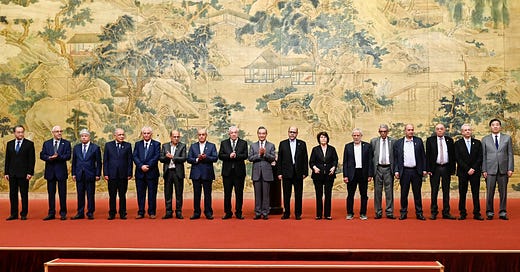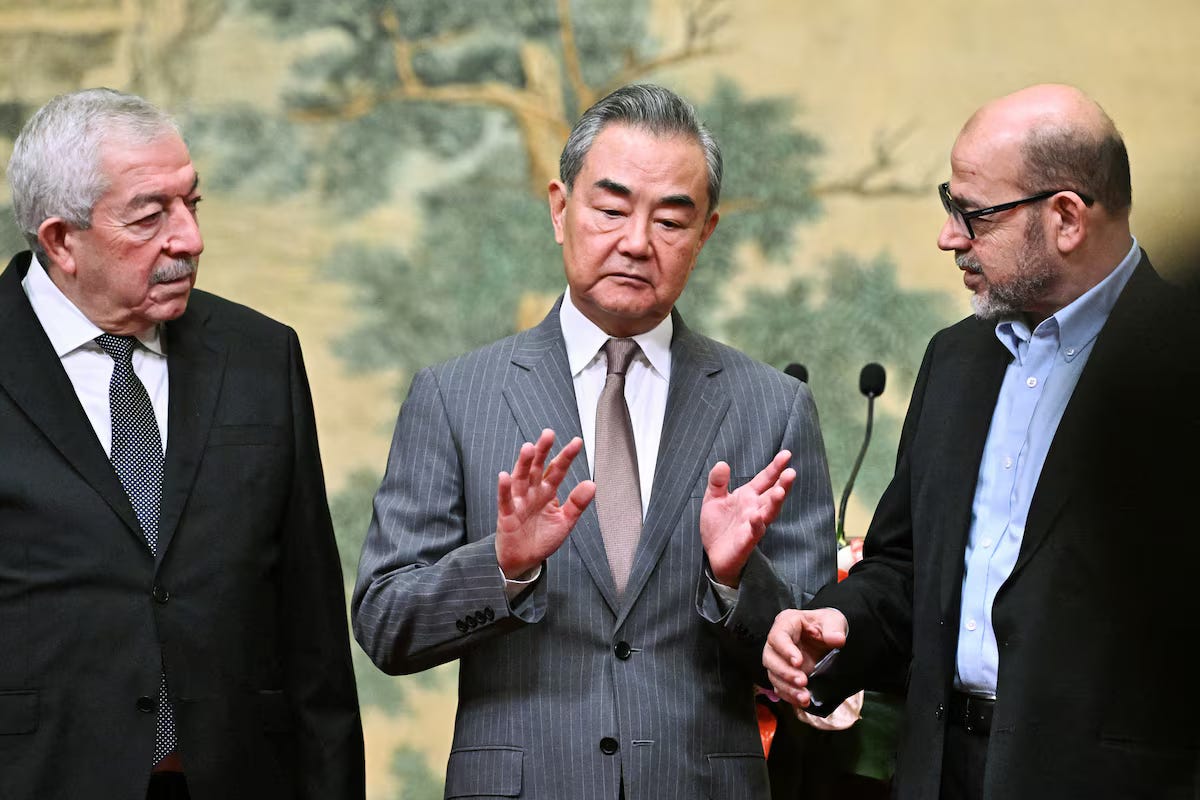China Brokers Historic Deal Between Fatah and Hamas
Background, Implications and International Reaction
Overview
In a surprising development on the international diplomatic stage, China has successfully brokered a significant deal between 14 Palestinian factions, including Fatah and Hamas. This agreement marks a pivotal moment in Middle Eastern politics and highlights China's growing influence in the region.
Main Attendees
Fatah
Hamas
Popular Front for the Liberation of Palestine (PFLP)
Democratic Front for the Liberation of Palestine (DFLP)
Palestinian Popular Struggle Front (PPSF)
Palestinian National Initiative (PNI)
Islamic Jihad
Palestinian People’s Party (PPP)
Background
Fatah and Hamas have been at odds for years, with their conflict intensifying since Hamas took control of Gaza after the 2006 elections, leaving Fatah in control of the West Bank. The division has led to political and territorial fragmentation within Palestinian territories, complicating peace efforts with Israel. Hamas's 7th October attack on Israel and following Israel's military operation grabbed the international community attention to this very old conflict in the Middle East.
Key Points of the Agreement
The agreement brokered by China includes several critical points:
1. Political Unity: Fatah and Hamas have agreed to form a unified government, which will oversee both the West Bank and Gaza Strip.
2. Elections: The factions will work together to organize and hold elections within a specified timeframe to establish a democratically elected leadership for all Palestinian territories.
3. Security Coordination: Joint security arrangements will be implemented to ensure stability and prevent internal conflicts.
4. Economic Cooperation: Both parties will cooperate on economic initiatives, with China's support, to improve infrastructure, create jobs, and boost the economy.
China’s Role in the Deal
China's involvement in Middle Eastern politics has been steadily increasing, driven by its economic interests and strategic desire to play a more prominent global role. Leveraging its position as a neutral party with strong relations with both Israel and Palestine, China facilitated discussions aimed at reconciliation. With the failure of US policy to mediate between various conflicting parties, and with the increasing influence of China and successful mediation between Iran and Suadi, it seems that China is using its influence among both Arab nations and Israel in addition to Iran in order to bring a solution to the conflict which would move forward its foreign policy of Belt and Road Initiative.
International Reactions
The international community has responded with cautious optimism:
- United States: While welcoming any steps toward Palestinian unity, the U.S. has emphasized the need for any government to recognize Israel and renounce violence.
U.S. State Department spokesman Matthew Miller said, “We made clear we want to see the Palestinian Authority” with a governing role in Gaza, “but no, we do not want to see a role for Hamas,” which he said has “blood on its hands.”
- Israel: Israel's response has been mixed, expressing concern over Hamas' involvement in the government but recognizing the potential benefits of a stable Palestinian administration.
Israel's foreign minister said no joint governance between Hamas and Fatah in Gaza will take place “because Hamas' rule will be crushed.”
- European Union: The EU has expressed support for the reconciliation efforts, viewing it as a positive step towards a comprehensive peace process.
Implications for the Region
- Palestinian Territories: The deal promises to bring much-needed political stability and economic development to Palestinian territories, improving the lives of ordinary Palestinians.
- China’s Influence: This successful mediation boosts China's credentials as a global peacemaker and a key player in Middle Eastern politics.
- Peace Process: The agreement could provide a fresh impetus for peace talks with Israel, although significant challenges remain.






